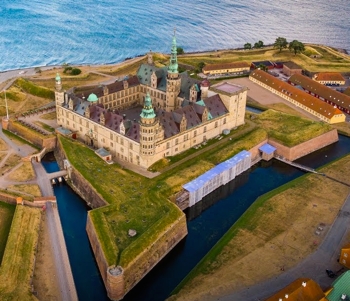 Edwin Woodruff, who was given a copy of Gertrude and Claudius by a cast member when he directed the play for community theater, wrote in a Patheos column that while he found Updike’s sequel to Shakespeare’s Hamlet “a bit offputting” in the beginning, with a style that “seemed stilted and awkward and the analysis of everyone’s motivations and thoughts rather labored and obvious. But it grew on me as it went on.
Edwin Woodruff, who was given a copy of Gertrude and Claudius by a cast member when he directed the play for community theater, wrote in a Patheos column that while he found Updike’s sequel to Shakespeare’s Hamlet “a bit offputting” in the beginning, with a style that “seemed stilted and awkward and the analysis of everyone’s motivations and thoughts rather labored and obvious. But it grew on me as it went on.
“Some of the descriptions of nature and the changing seasons are absolutely gorgeous, and the characters—mostly Gertrude, Claudius, and Polonius—are fleshed out beautifully in ways that more or less support my own reading of the play but also enrich my understanding of it.”
His conclusion: “Gertrude and Claudius and their hapless sidekick Polonius come alive as people—deeply flawed but sympathetic people who make bad decisions for understandable human reasons,” something that might be said of most Updike novels. “It would be an interesting piece of historical fiction in its own right, but as a kind of midrash on Shakespeare it becomes much more than that.”
Pictured: Elsinore “Hamlet’s castle” in Denmark.

I thought it was a pretty good novel!